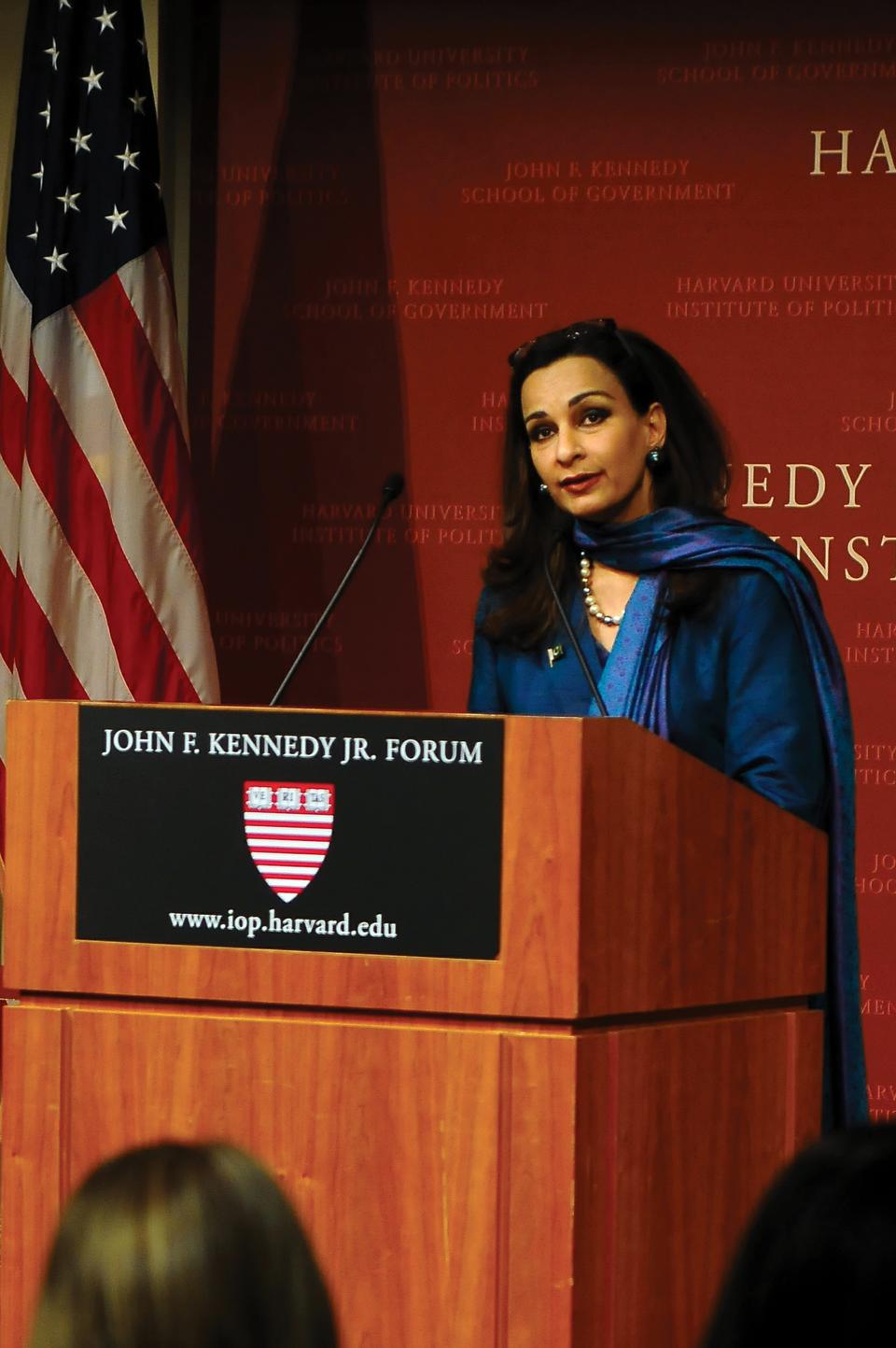
News
When Professors Speak Out, Some Students Stay Quiet. Can Harvard Keep Everyone Talking?

News
Allston Residents, Elected Officials Ask for More Benefits from Harvard’s 10-Year Plan

News
Nobel Laureate Claudia Goldin Warns of Federal Data Misuse at IOP Forum

News
Woman Rescued from Freezing Charles River, Transported to Hospital with Serious Injuries

News
Harvard Researchers Develop New Technology to Map Neural Connections
Pakistan Ambassador Hopes for Better Future

Pakistan’s Ambassador to the United States Sherry Rehman advocated improving international relations while facing tough criticism over domestic issues at the Institute of Politics Tuesday night.
Meghan L. O’Sullivan, professor of the practice of international affairs at the Harvard Kennedy School, set the tone for the night when welcoming the speaker.
“She really embodies the bridge between these two countries,” Sullivan said. “As we well know, this is a difficult relationship, but also a consequential relationship.”
Rehman opened by echoing hopes for a sustainable relationship between the United States and Pakistan, focusing her address on lessons learned from the past.
Rehman referenced the war in Afghanistan with its political, social, and cultural implications. She highlighted its continued centrality in the countries’ current discourse, yet emphasized the danger in repeating the mistakes of the past.
“Even if we had somehow crafted and executed the best of policies, Pakistan was left with some of the world’s largest population of refugees,” Rehman said. “They are the forgotten statistic from that war. Ladies and gentleman, Pakistan cannot afford a repeat of the 1980s.”
The ambassador also called for positive changes in disposition to ensure a sustainable relationship.
“Coarse diplomacy through the media is not the way to diplomacy. We need to talk issues through,” Rehman said.
The night transitioned to a forum where attendees, many from Pakistan or of Pakistani descent, requested the ambassador’s insight into some of the country’s most poignant issues.
Rabeea Ahmed ’14 asked the ambassador of the current mass killings in Balochistan and the government’s response to such violations of human rights.
Syed Shehroz Hussain received resounding applause after questioning the ambassador why his late father, a Shia leader in Pakistan, was not provided with the protection he requested.
“My government has treated this act of senseless murder as quite unconscionable and frankly unacceptable as it presents a clear and present danger to us and how we seek to protect our citizens,” Rehman said. “If our citizens are unempowered or endangered it is the failure of our government.”
As tensions subsided, the ambassador chose to end the night on a positive note.
“Enough of looking back,” Rehman said. “We are looking forward rather than looking backwards. Let me assure you, history will not end in 2014. Pakistan hopes to be a valuable partner and friend beyond that milestone.”
—Staff writer Fatima Mirza can be reached at fmirza@college.harvard.edu. Follow her on Twitter @fatimanmirza.
Want to keep up with breaking news? Subscribe to our email newsletter.
